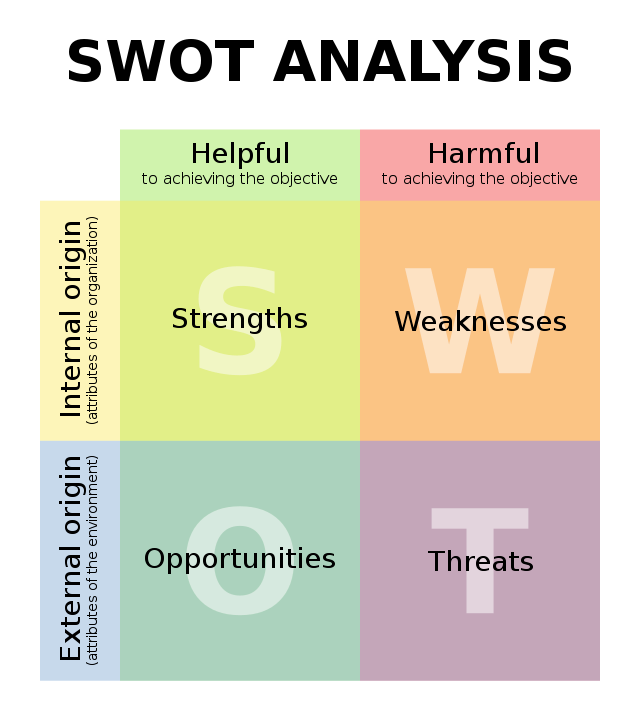Published
|Last updated
Swot
Learn what a popular - SWOT - the phrase means in online marketing. Click and read more.
Published
|Last updated
Learn what a popular - SWOT - the phrase means in online marketing. Click and read more.
![What is SWOT - [Marketing Dictionary]](/assets/img/dictionary-background.webp)
What is SWOT
SWOT stands for: Strengths, Weaknesses, Opportunities, and Threats - this analysis is a useful strategic planning tool that provides a framework to evaluate the internal and external factors affecting an organization or a project. SWOT analysis is a management tool that helps analyze the current state of the business environment, helps identify the strengths and weaknesses of the organization, and helps determine future opportunities and potential threats. The SWOT method was first introduced by Albert Humphrey, an American business consultant, in the 1960s. Humphrey was working on a research project at Stanford Research Institute, and he was looking for a method to help companies in difficult situations. The method he developed was SWOT analysis, which became one of the most popular and widely used tools in business management.

SWOT analysis is used by businesses, non-profits, and government agencies to identify their internal and external environments. It involves analyzing the strengths and weaknesses of the organization, its business strategies as well as the opportunities and threats in the environment. This analysis helps businesses identify areas where they can improve and areas where they need to be cautious.
The first step in conducting a SWOT analysis is to identify the strengths and weaknesses of the company. This includes an analysis of the internal environment, such as the company’s products and services, the organizational structure, and the skills of the employees. External analysis includes evaluating the competition, industry trends, and changes in the market.
Once strengths and weaknesses are identified, potential opportunities and threats in the environment are then analyzed. Opportunities are factors that offer potential for growth or development. Threats are environmental factors that could potentially harm the business.
A small-town restaurant wants to conduct a SWOT analysis. They identify their company’s strengths, such as great food and fair prices, and weaknesses, such as low foot traffic or limited marketing. They analyze potential opportunities, such as offering delivery or catering, and potential threats, such as a new restaurant opening up nearby. With this analysis, the restaurant can determine areas to work on and strategically plan for the future.
SWOT analysis can be a useful tool for businesses of all sizes and types. It can help business owners and managers to make informed decisions and better understand the internal and external environment of their organization.
Swot analysis examples:
SWOT analysis is an essential tool used in business management, planning, and decision-making. It helps organizations identify their strengths, weaknesses, opportunities, and threats. It is a flexible and adaptable tool that can be used by businesses of all sizes to identify areas to improve and strategically plan for the future, especially focused on internal versus external factors. SWOT analysis covers waste areas of interest and can give a competitive advantage to those who can implement it in their organization’s planning.
❤️ Spread the word! ❤️
Found this guide valuable? Share it with your colleagues to help them boost their local marketing results too!
Powered by Localo 2026